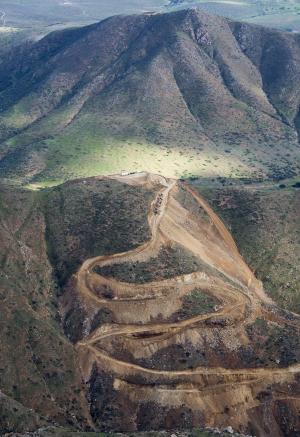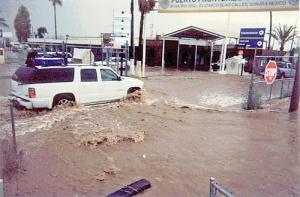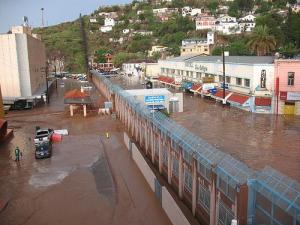In April 2008, the Bush Administration waived 30 environmental and land management laws that stood in the way of completing 470 miles of fencing on the U.S.-Mexico border by the end of that year. "Criminal activity at the border does not stop for endless debate or protracted litigation," former Department of Homeland Security (DHS) head Michael Chertoff said, "Congress and the American public have been adamant that they want and expect border security. We're serious about delivering it, and these waivers will enable important security projects to keep moving forward."
Following this precedent, Rep. Rob Bishop (R-Utah) introduced a new bill in April that would give immigration enforcement agents free rein on land within 100 miles of all land and maritime borders, and the ability to waive any law that impedes "border security." As Randy Serraglio, of the Tucson-based Center for Biological Diversity, says in the below audio interview - this would mean the "entire state of Florida."
Republican Senators John McCain and Jon Kyl of Ar izona weren't far behind Bishop with their own proposed border enforcement bill known as S 803, in which they detail a 10-point border security implementation plan. One point is the requirement that the Department of Agriculture (which includes the U.S. Forest Service) and the Department of the Interior give Border Patrol immediate access to all public land within 150 miles of the international boundary.
Environmental organizations nationally and throughout the borderlands have voiced their opposition to these bills, and DHS's attempt to waive any law that gets in its way. On July 14, several of these groups released the findings of a poll where they found that most people in the United States did not approve of the federal government waiving laws to construct a border fence, especially when they learned about both the real cost ($6 to $9 million per mile), and the environmental damage.
In the following interview, Randy Serraglio talks about the environmental impacts of the fencing, the federal government's non-abidance to environmental law, and much more.
To download audio, right-click here, and select "save link."




Did you find this useful? Donate to NACLA

